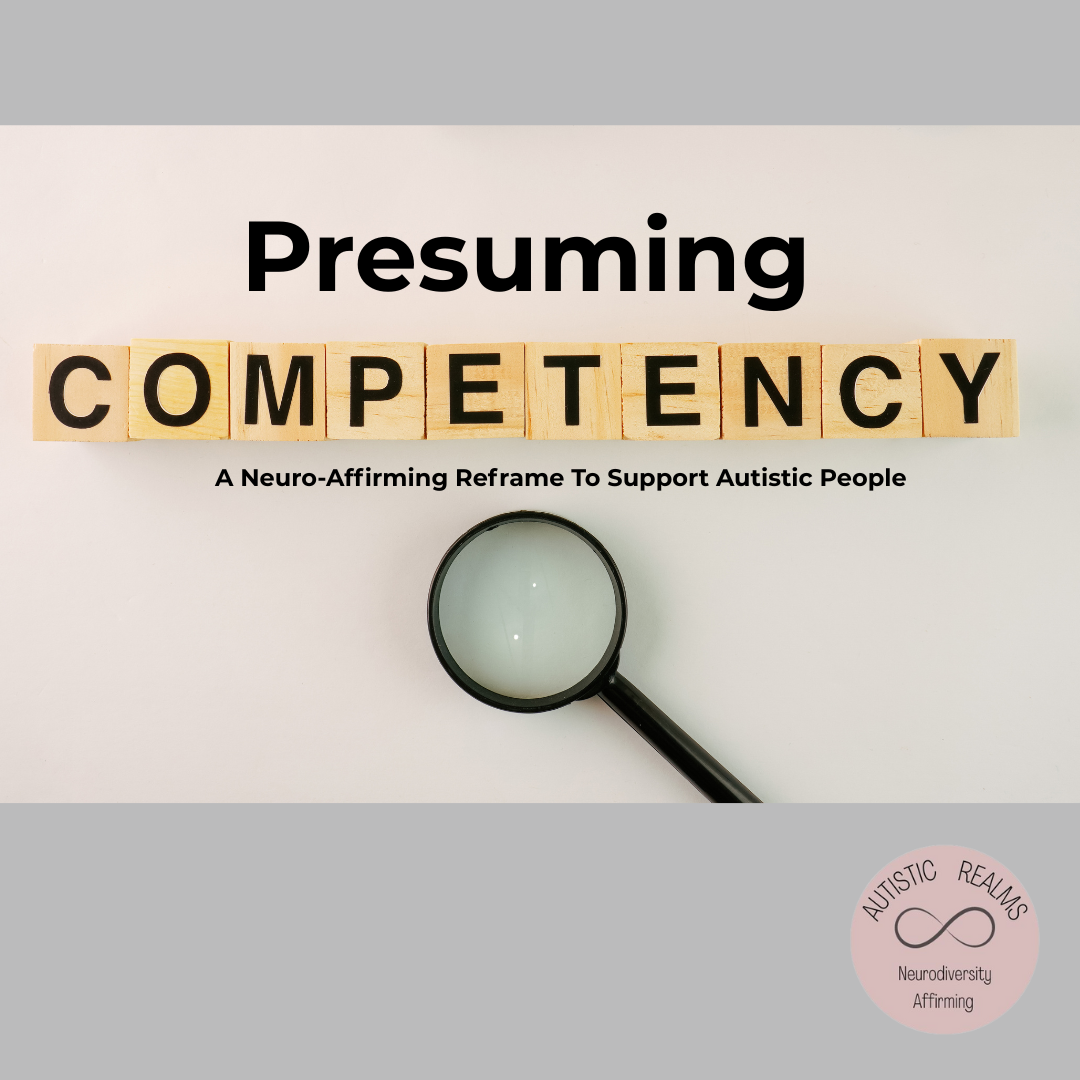Your basket is currently empty!

Parent ideas for autistic children struggling with school attendance
If your child is autistic, then they are more likely to have additional anxiety, social, communication and sensory processing difficulties. Consequently, school can be a difficult and overwhelming place for them to be if they are not in the right environment with teachers that fully understand them or have the right provision to meet needs. There will ALWAYS be an underlying reason why children feel unable to go to school. It’s helpful to reframe your own narrative and understand that your child is ‘unable to attend school’ due to anxiety and mental health, they are not ‘refusing’. It is not their fault that they may be struggling or may not be able to attend, it is not a choice.
Some signs your child is struggling at school
complaints of tummy / headaches
disrupted sleep
change in behaviour
change to responses to sensory input
‘excuses’ of why they don’t want to go to school
change in friendships and socialising / play
withdrawal from social activities
It can help to write down their day and see if you notice any patterns as to when they are struggling.
“But they seem fine” – Autistic Masking
There may be a big difference between how they present at school and how they are when they are in their safe space at home with you.
This is often the result of ‘autistic masking’ when either consciously or subconsciously children (and adults) try to fit in with their peers.
If your child is masking, then their autistic needs and ways of regulating are not being met and long term this can cause further anxiety and potential mental health difficulties.
‘Challenging behaviour’ nEfforts to try and engage in school may be more obvious for some children, they may be described as having ‘challenging behaviour’ – these children are also struggling.
Unable to able to fully engage in lessons
‘Disruptive’ in class
Difficulty concentrating and doing work
Not able to regulate their sensory system
Difficulties when they play and interact with other children
If your child is described as having ‘challenging behaviour’, then their autistic needs and ways of regulating are not being met and long term this can cause further anxiety and potential mental health difficulties.
The environment needs to change
If this all sounds familiar, then it is a sign that your child needs support, and things need to change.
The people working with your child need to work collaboratively with you as parents to help support and meet your child’s needs, you know your child best.
If children are happy and regulated and their needs are being met in school, they will be happier and more regulated at home too, it works both ways.
You cannot separate home and school – they need understanding and support in both settings
Collaborative ApproachAll teachers and any other professional involved will want to do the best for your child, it is why they have trained for their job, everyone needs to be open and work together. If you as a parent feel like you are not being listened to, let people know. Everyone needs to be on the same page to support your child in the best way possible.
It is not a failure of parents to ask for help.
It is not a failure of teachers to admit they don’t know something, but they will find out and signpost if needed
It is not the fault of the child if they are struggling or feel unable to attend school
Try and get a meeting with everyone to co-ordinate a plan and next steps
Not all schools can meet all needs – that is why we have the specialist provision and alternative pathways
Parents should not be blamed for their children being unable to attend school however, this can and does happen in some circumstances. Schools have a duty of care and responsibility to ensure all children registered get an education. This puts extra pressure on schools to focus on attendance but in reality, the focus needs to shift to supporting mental health.
Survival – fight / flight / freeze / fawn
Attendance for the sake of ‘physically just getting to school’ is not beneficial to anyone, it can lead to trauma responses and mental ill health.
Learning can only take place when children are ready to learn
Children need to be regulated in the right environment with people
Children need to feel safe with and have a positive relationship with key adults
If children are in survival – fight / flight / freeze/ fawn mode, they will not be able to fully engage and eventually could end up being unable to attend at all and experience autistic burnout
Feel like you have tried everything?
If you are at the crossroads of feeling like you have tried everything and do not know what more you can do then it could be worth looking at alternative routes for your child’s education. Rather than trying to battle and make your child fit into a school that is not right for them it may be worth investigating different learning environments / settings / alternative provision where your child is able to thrive. For some children this will mean applying for an EHCP (Education Health Care Plan) to access that provision.
Getting an EHCP
To get the best outcome and provision, your child’s school may suggest your child is assessed for an Education Health Care Plan (EHCP), however if you have concerns you can also apply yourselves as parents via your local council. It is a needs-based assessment, so you do not need any formal diagnosis to apply. There is further information about applying for an EHCP on the IPSEA website and model letters you can adapt.
(IPSEA) Independent Provider of Special Education Advice
Parent Support I have personally found the following websites and groups informative and supportive:
Define Fine – Parent Peer Support for School Attendance Difficulties
SOS!SEN | The Independent Helpline for Special Education Needs (sossen.org.uk)
Local SENDIASS Services.
If you are an autistic parent, there are lots of webinars and resources on the Autistic Parents UK website that may be useful to have a look at for additional information and support for yourself.
Luke Beardon’s work may also help you reframe and deepen your own understanding of Autism and your children’s needs.
The Autistic Girls Network (it’s not just for girls!) also produced this excellent resource of accommodations that you may want to consider for your autistic children in school. However, if so many accommodations are needed then it is worth questioning whether that school is the right setting for your child.
Different Pathways
Look at your Local Authority website under their ‘Local Offer’ there are lots of different paths including:
Mainstream schools (with support via an EHCP if needed)
Resource bases
Special Educational Needs (SEN) settings
Alternative independent specialised settings that you may be able to apply to (with possible funding via your child’s EHCP).
EOTAS (Education Other Than At School)
EHE (Elective Home Education)
Combination of various provision may work out best
There are a lot of different options to explore, even though your child may be struggling now it doesn’t mean this will be forever! Time to recover If your child is severely struggling and has been having difficulties for a long time, or all of sudden things escalate quickly, they may need time to recover at home.
contact your GP to discuss your concerns
they may refer you to CAMHS (Child and Adolescent Mental Health Service), this is ok and will get you support
waiting lists can be long for support but many local charities and parent led groups are helpful such as Not Fine in School – School Refusal, School Attendance & squarepeg (teamsquarepeg.org)
- Whatever path you choose it doesn’t need to be forever, if things don’t work out you can make changes.
If you are struggling as a parent, get support for yourself, you can’t pour from an empty cup, your well-being matters too. nnYou can get through this! nnAutistic Burnout: A Family Guide is available here: Shop | Autisticrealms
**Article written from my lived experience as a parent and teacher. Knowledge gained through various personal research and neurodivergent communities.
Autistic Realms is a space for parent support and teacher guidance. I am not a medical professional or therapist.**
Latest Posts
-
Autistic Burnout – Supporting Young People At Home & School

Autistic burnout in young people is real—and recovery starts with understanding. This post offers neuroaffirming ways to spot the signs, reduce demands, and truly support. 💛 #AutisticBurnout #Neuroaffirming #Monotropism #AutisticSupport
-
Monotropic Interests and Looping Thoughts

The theory of monotropism was developed by Murray, Lawson and Lesser in their article, Attention, monotropism and the diagnostic criteria for autism (2005). Monotropism is increasingly considered to be the underlying principle behind autism and is becoming more widely recognised, especially within autistic and neurodivergent communities. Fergus Murray, in their article Me and Monotropism:…
-
Map of Monotropic Experiences

Monotropism seeks to explain Autism in terms of attention distribution and interests. OSF Preprints | Development and Validation of a Novel Self-Report Measure of Monotropism in Autistic and Non-Autistic People: The Monotropism Questionnaire This map highlights 20 common aspects of my personal monotropic experiences. How many do you experience? Where are you on the map…
-
Autistic Burnout – Supporting Young People At Home & School

Being autistic is not an illness or a disorder in itself, but being autistic can have an impact on a person’s mental and physical health. This is due to the often unmet needs of living in a world that is generally designed for the well-being of people who are not autistic. In addition, three-quarters of…
-
The Double Empathy Problem is DEEP

“The growing cracks in the thin veneer of our “civilised” economic and social operating model are impossible to ignore”, Jorn Bettin (2021). The double empathy problem (Milton, 2012) creates a gap of disconnect experienced between people due to misunderstood shared lived experiences. It is “a breakdown in reciprocity and mutual understanding that can happen between people…
-
Top 5 Neurodivergent-Informed Strategies

Top 5 Neurodivergent-Informed Strategies By Helen Edgar, Autistic Realms, June 2024. 1. Be Kind Take time to listen and be with people in meaningful ways to help bridge the Double Empathy Problem (Milton, 2012). Be embodied and listen not only to people’s words but also to their bodies and sensory systems. Be responsive to people’s…
-
Autistic Community: Connections and Becoming

Everyone seeks connection in some way or another. Connections may look different for autistic people. In line with the motto from Anna Freud’s National Autism Trainer Programme (Acceptance, Belonging and Connection), creating a sense of acceptance and belonging is likely to be more meaningful for autistic people than putting pressure on them to try and…
-
Monotropism, Autism & OCD

This blog has been inspired by Dr Jeremy Shuman’s (PsyD) presentation, ‘Neurodiversity-Affirming OCD Care‘ (August 2023), available here. Exploring similarities and differences between Autistic and OCD monotropic flow states. Can attention tunnels freeze, and thoughts get stuck? Autism research is shifting; many people are moving away from the medical deficit model and seeing the value…
-
Monotropism Questionnaire & Inner Autistic/ADHD Experiences

Post first published 28th July 2023 Over the past few weeks, there has been a sudden surge of interest in the Monotropism Questionnaire (MQ), pre-print released in June 2023 in the research paper ‘Development and Validation of a Novel Self-Report Measure of Monotropism in Autistic and Non-Autistic People: The Monotropism Questionnaire.‘ by Garau, V., Murray,…
-
Penguin Pebbling: An Autistic Love Language

Penguin Pebbling is a neurodivergent way of showing you care, like sharing a meme or twig or pretty stone to say “I’m thinking of you,” inspired by penguins who gift pebbles to those they care about.
-
Understanding the Double Empathy Problem: A Guide For Autistic People & Families

FREE Neuro-Affirming Communication & Sensory Passport + Training Support Autistic people through better understanding of communication, sensory needs & double empathy.
-
Presuming Competence: A Neuro-Affirming Reframe To Support Autistic People

When “presume competence” is applied without a neuro-affirming lens, it can become a harmful, ableist expectation
-
Ethics & Values of Autistic Realms

Autistic Realms is grounded in values of authenticity, autonomy, and relational care for the human rights of Autistic or otherwise neurodivergent and disabled people. These guiding principles align closely with the ethics and principles of both the Therapist Neurodiversity Collective (TNDC) and the Autistic Self Advocacy Network (which I am a member of – ASAN),…













